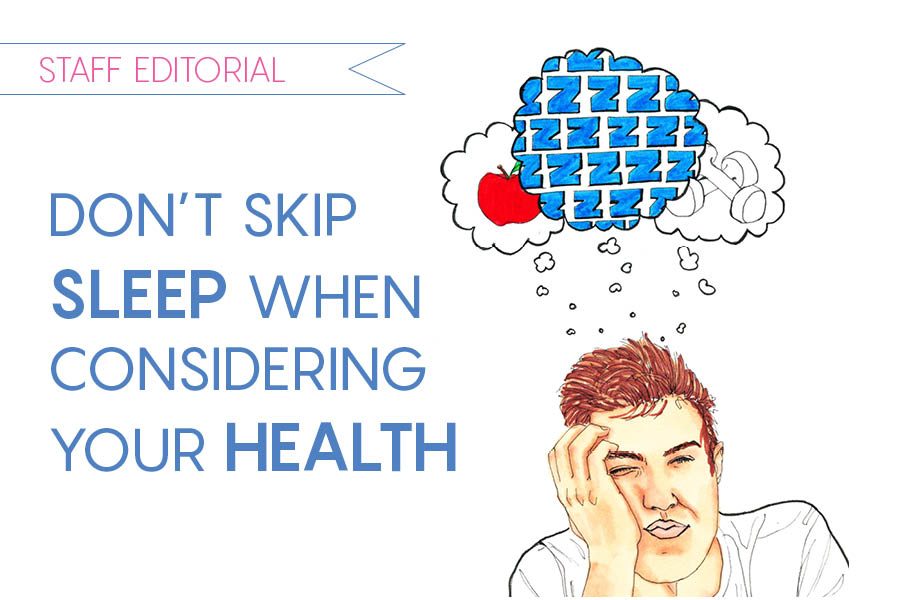Staff editorial: sleep is a vital part of health
When considering your physical and mental health, don’t skip over sleep as it is an essential part
By Marissa Olin
December 15, 2017
As your eyes droop and you drink your fourth cup of coffee, desperately trying to stay awake studying so you can get an A on your final, you probably aren’t thinking about the ramifications of these actions. But, you should. Sleep is vital not only for just your physical or just your mental health, but your overall health.
We all know that sleep is important, but to what extent? According the the division of Sleep Medicine at Harvard Medical School, a consistent lack of sleep is associated with long-term health consequences such as diabetes, high blood pressure and heart disease, which can lead to a shortened life expectancy.
On a less extreme scale, a lack of sleep can affect judgment, mood, ability to learn and retain information and may increase the risk of serious accidents and injury.
It’s not that students think sleep isn’t a necessity; in fact, 71 percent of the 273 students surveyed get the recommended six to eight hours of sleep each night. It’s just that sleep is often overlooked in the multitude of factors contributing to our health.
As we’ve grown, the Health classes we’ve taken have had to cover a wide-variety of topics and the importance of sleep may get lost between bigger topics in the curriculum. Instead of relying on school to teach us about our own health, we should take the time to research and learn that letting our body rest is just as important as all of the other aspects.
It’s understandable why the other 29 percent of students don’t get enough sleep each night— it’s hard to prioritize sleep when there are so many other factors to consider. This could be due to the pressures of academics, sports and activities that can lead students to give up rest in exchange for perceived success.
Americans often idealize the “work hard and earn what you want” mentality and as a result, a lack of sleep is romanticized and normalized. This is showcased with 56 percent of students saying they prioritize homework over sleep. Instead of placing so much pressure on ourselves to perform, we should realize that sleep is an important part of performance.
As part of this realization we should be making an effort to actively and consistently reach eight hours of sleep each night. Small things like time management to reduce procrastination or not using our phones one hour before bed can improve the quality of our rest. In addition, we can remember that it’s OK to say no to yet another extracurricular or to the prospect of taking another time-consuming AP class. Prioritizing your sleep, and your health, will benefit you over any and all academic or social aspects.
Despite all of the health consequences, in terms of tests and finals it comes down to sleep always being the better option. Take a piece of Physics teacher Ryan Johnston’s advice: “If you wouldn’t get up early to do it, don’t stay up late to do it.” As you’re studying for finals and the clock strikes 11, put the stuff away and just go to sleep. We understand you have a lot to do, but it will end up better if you do.








